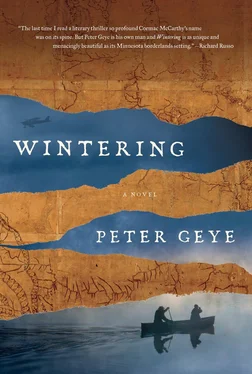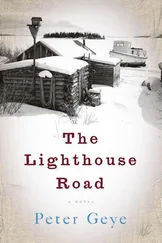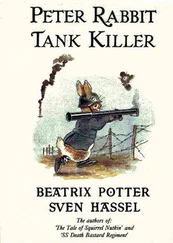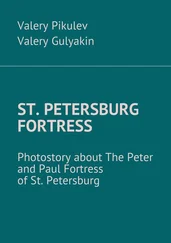For my boys, Finn and Cormac
And for Dana
The country between Lake Superior and the Lake of the Woods is, like the whole watershed between Hudson’s Bay and the Valley of the St. Lawrence, a rugged assemblage of hills, with lakes, rivers, and morasses, of all sizes and shapes, in their intervals. It is, in fact, a drowned land, whose waters have assumed their permanent features by a balance of receipt and discharge.
They all communicate practically with each other, either by water or by portages, so that the traveller may reach the Lake of the Woods by many routes, differing only in danger, labour, and directness.
— JOHN JEREMIAH BIGSBY
OUR WINTERS are faithful and unfailing and we take what they bring, but this season has tested even the most devout among us. The thermometer hanging outside my window reads thirty-two degrees below zero. Five degrees warmer than yesterday, which itself was warmer than the day before. I can hear the pines exploding, heartwood turned to splinter and pulp all up and down the Burnt Wood River.
As if the cold weren’t enough, yesterday brought another unkindness. Gustav Eide came bearing it: his father’s red woolen hat — the one he wore almost every day, the type children wear tobogganing — found by those Bargaard twins as they ice-skated out past the breakwater.
It wasn’t the first time Gus came knocking this winter. Back in November he held his own hat in his hands. Gus, with his father’s lonesome, lazy eyes, standing bareheaded but buttoned up outside my door.
“I hate to drop in unannounced, Berit,” he had said then.
“Since when do we stand on ceremony around here? Come in.”
He stepped inside but stood with his back against the door, his eyes studying his bootlaces. I’ve seen much of this town’s woe, its suffering and tragedy, and have marked it all. While I stood there waiting for Gus to speak, I knew my own everlasting sadness was suddenly upon me.
“He disappeared last night, Berit.” He spoke without looking up. “He’s gone.”
I turned and stepped carefully to the bench under the window and sat.
“We found tracks heading up the river,” he said.
I looked up at him, now looking down at me. I thought of sitting at his father’s bedside the evening before, holding his hand, singing to him. I thought of how Harry had looked at me, his gaze seeming to go through me and into some past only he could see. I was disappearing from his view. This I knew.
Gus came and sat next to me on the bench. “That new sheriff — Ruutu’s his name — is leading the search. We went all the way up past the lower falls. The dogs lost his scent around the Devil’s Maw. Ruutu’s down in Gunflint right now, calling for more help.”
He reached over and held my hand, a gesture he surely learned from his father and one that calmed me down, at once familiar and uncanny. There are depths to those Eides no sounding line will ever reach. I knew this about Harry and I have come to know it about Gus, though on that November morning he knew me much better than I did him.
“They’re not going to find him, Berit.”
He let my hand go and sat back and rubbed the cold from his cheeks.
“Why would you say that? He can’t have gone far,” I said, thinking again of that faraway look in Harry’s eyes.
“We’ve heard this story before, haven’t we?”
“Speak plainly, would you? For the benefit of an old lady?”
Then Gus looked through me just as his father had only hours before. “People searched for don’t get found here. Not in these woods.” He closed his eyes and shook his head as though to banish some thought. “Put on some coffee? I’ll tell you how all this happened.”
So I did. I went to the kitchen and filled the kettle at the sink. As the water poured from the faucet I glanced upriver, where I have kept my eyes more or less since. Two stories began that day in November. One of them was new and the other as old as this land itself. Both of them were borne by the river.
—
Ruutu and his deputies and Gus and his sister, Signe, and the good people of Gunflint spent a week searching for Harry, every dawn following some new dead end into the wilderness, every dusk emerging from wherever they’d been, tired and cold and no closer to finding him. Gus stopped by each evening to tell me where they’d looked, assuring me every single time they’d never find him. Even still, the next morning he went out with the others. Sometimes three or four parties, following three or four leads. When, finally, they conceded Harry to the wilderness, it was thanks to Gus’s insistence. Signe went back home to Minneapolis. Gus back to his job teaching English and history at Arrowhead High School. Ruutu back to our local misdemeanors and traffic violations.
Me? I was still searching in my own fashion. That first morning, I visited Harry’s empty bed. There was the iron headboard and the flannel linens and the quilt crumpled at the foot of the bed. Harry was always too warm. The pillow still held the imprint of his head. His medication sat on the bedside table, next to the radio and a half-drunk glass of water. The bureau opposite the bedside table was as old and timeworn as whatever part of Harry stored his memories. I crossed the room and opened the top drawer and noticed straightaway his knit hat was missing. Strangely, the pompom had been snipped off.
I’d passed the previous evening as I had so many others before it, sitting at his bedside, reminding him of who we used to be, feeling at times that I was not only disappearing into the darkness of his mind but from the world altogether. It was no less strange that evening than it had been at the start of his confinement to see a man still so bodily strong becoming a child again. No less strange and no less unbearable.
Of that last night we spent together, I cannot say he exhibited any signs he was about to undertake a disappearance, no word spoken or gesture made that gave me pause. He did nothing that might’ve forewarned me. That evening I only hoped, as I did every night, that when he finally fell to sleep he would do so with the knowledge of my love, and that when he dreamt it would be of peaceful things.
It was Doctor Ingebrigsten — who grew up in Misquah, went to medical school in Minneapolis, and returned to Arrowhead County because, she said, this place needed one of its own to care for its sickly — who described to Gus and me what it would become like for Harry. “You and I,” she said, “we see our past as though it were a bright summer day. The trees green, flowers blossoming, the water shining blue. Harry’s going to start seeing less and less of his past until — sadly — everything will seem as though it’s taking place in a nighttime blizzard in the dead of winter.” She said this on a September morning, with the trees in full autumn blaze — our loveliest time of year — and I wept to think that the man I loved would never register that beauty again, even if he lived another ten years.
That same morning Doctor Ingebrigsten told me the best thing I could do for Harry was to be with him. Sit at his bedside and talk to him and tell him I still loved him. To hold him among us for as long as I could. So I did. Of course I did.
And now it’s been half of a winter since Harry vanished, and I can finally rest my thoughts. I ought to feel relief. Of this I’m sure. But do you know what it’s like to hold proof of the last heartache you’ll ever know in your own raw hands? I hadn’t known, either, not until Gus delivered Harry’s red hat yesterday morning, a cork bobber sewed on where the pompom should’ve been. Gus’s stories and that damn hat — handed to me like a verdict and never spoken of again — these things have made of my heart what this season has of the splintering pines along the river.
Читать дальше












